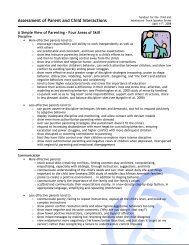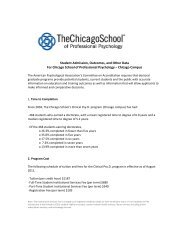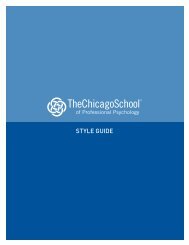Center for Academic Excellence Writing Assessment ... - eGo Main
Center for Academic Excellence Writing Assessment ... - eGo Main
Center for Academic Excellence Writing Assessment ... - eGo Main
Create successful ePaper yourself
Turn your PDF publications into a flip-book with our unique Google optimized e-Paper software.
The Atlantic Online | June 2009 | What Makes Us Happy? | Joshua Wolf Shenk<br />
12/31/09 10:15 PM<br />
PSYCHOLOGY JUNE 2009<br />
Is there a <strong>for</strong>mula—some mix of love, work, and psychological adaptation—<strong>for</strong> a good life? For 72 years, researchers at<br />
Harvard have been examining this question, following 268 men who entered college in the late 1930s through war,<br />
career, marriage and divorce, parenthood and grandparenthood, and old age. Here, <strong>for</strong> the first time, a journalist gains<br />
access to the archive of one of the most comprehensive longitudinal studies in history. Its contents, as much literature as<br />
science, offer profound insight into the human condition—and into the brilliant, complex mind of the study’s longtime<br />
director, George Vaillant.<br />
by Joshua Wolf Shenk<br />
What Makes Us Happy?<br />
IMAGE CREDIT: MARK OSTOW<br />
Case No. 218<br />
How’s this <strong>for</strong> the good life? You’re rich, and you made the dough yourself. You’re well into your 80s, and have spent<br />
hardly a day in the hospital. Your wife had a cancer scare, but she’s recovered and by your side, just as she’s been <strong>for</strong><br />
more than 60 years. Asked to rate the marriage on a scale of 1 to 9, where 1 is perfectly miserable and 9 is perfectly<br />
happy, you circle the highest number. You’ve got two good kids, grandkids too. A survey asks you: “If you had your life to<br />
live over again, what problem, if any, would you have sought help <strong>for</strong> and to whom would you have gone?” “Probably I<br />
am fooling myself,” you write, “but I don’t think I would want to change anything.” If only we could take what you’ve<br />
done, reduce it to a set of rules, and apply it systematically.<br />
Right?<br />
Case No. 47<br />
You literally fell down drunk and died. Not quite what the study had in mind.<br />
Last fall, I spent about a month in the file room of the Harvard Study of Adult Development, hoping to learn the secrets of<br />
the good life. The project is one of the longest-running—and probably the most exhaustive—longitudinal studies of mental<br />
and physical well-being in history. Begun in 1937 as a study of healthy, well-adjusted Harvard sophomores (all male), it has<br />
followed its subjects <strong>for</strong> more than 70 years.<br />
http://www.theatlantic.com/doc/print/200906/happiness<br />
Page 1 of 20





